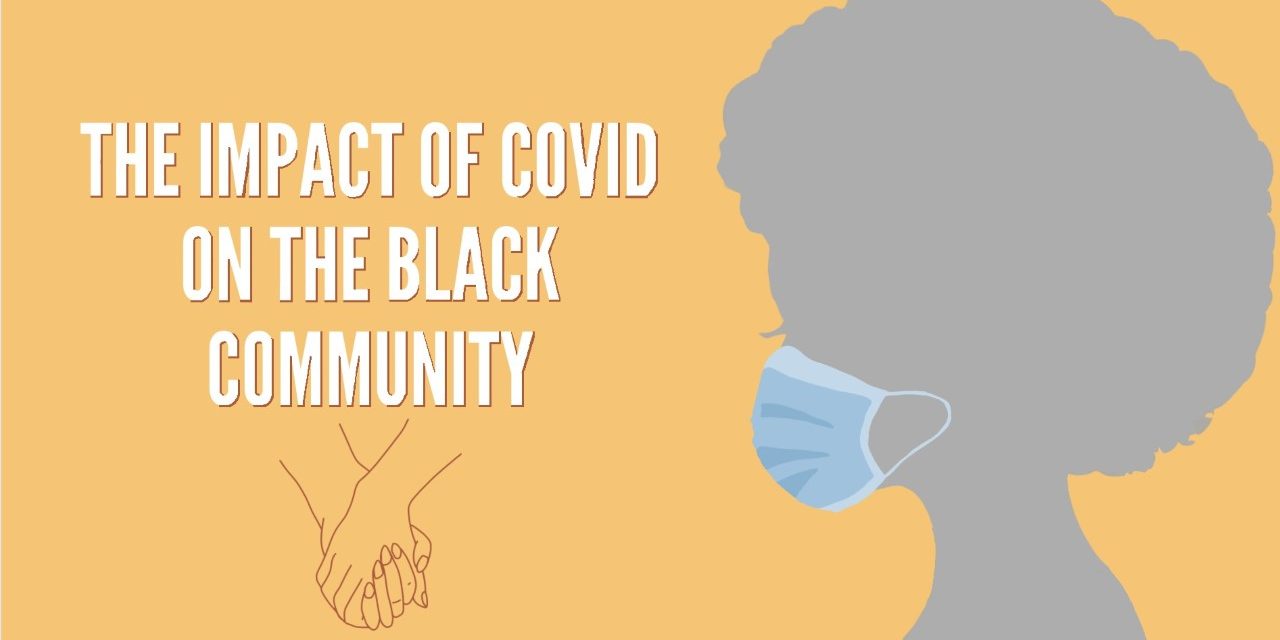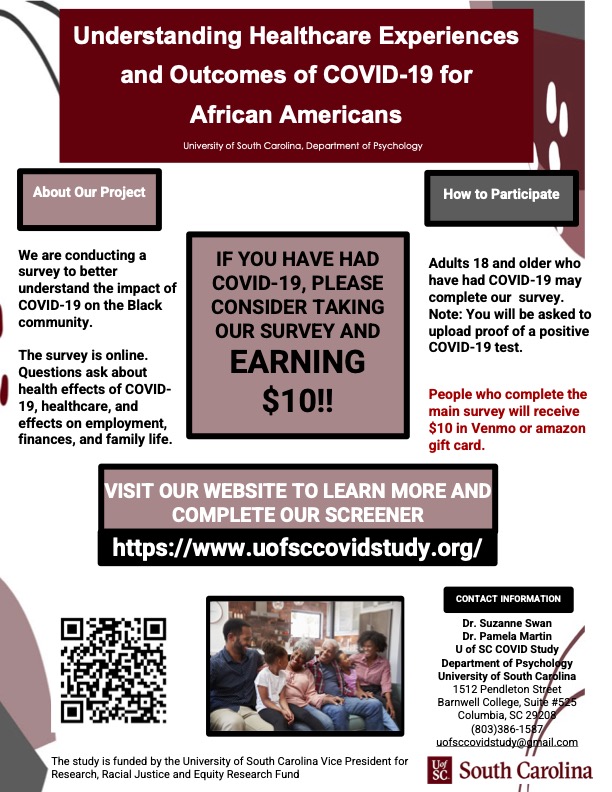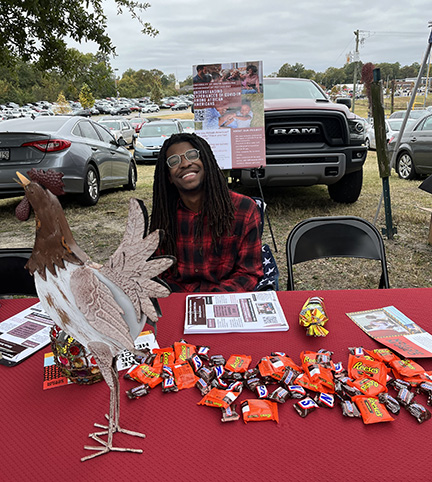University of South Carolina’s psychology department’s COVID-19 disparities study is researching the disease’s impact on Black communities. (Graphic by Reagin von Lehe/Carolina News & Reporter)
USC’s psychology department is conducting a research study to understand how the COVID-19 pandemic is affecting Black communities.
But recruiters are having trouble finding African American participants to answer a the study’s survey questions.
Professor Suzanne Swan applied for the Racial Justice and Equity Research fund grant in September 2020, got approved and began research in May 2021.
“I don’t think there’s been as much research on the financial consequences” of the virus, Swan said. “(We haven’t found research) looking at the extent to which someone lost a paycheck … or their job because they had to quarantine, how that may impact how the pandemic affected them both in terms of their health and mental health.”
She said her team of recruiters had expected to have all of its data gathered by now, but participation has slowed. Swan and her colleagues hope to have COVID-19 disparities research study data collected by this upcoming year.
There have been studies done by organizations such as The COVID Tracking Project that indicate a disproportionate experience among different racial groups, including financial disparities, testing and vaccination distribution.
Nationwide, Black patients have died at a rate of 178 per 1000, which is 1.4 times the 124 rate of white patients, according to the tracking project.
“This pandemic recently just showed us how underprepared we are for something like this,” said Isaiah Allen, the research study’s social media and outreach manager. “There’s so much to learn from this.”
Participants have to complete a screening test to begin the study, and in it, submit proof of their positive COVID-19 test.
Whether people don’t have proof of a positive test or they think the study is a scam, it’s difficult to find people who’re willing to answer the survey, said Allen, who is African American.
“They might not understand the significance of the survey and what kind of information we can learn from it, especially since there’s no data on African Americans during the Spanish flu of 1918,” he said. “… It’s like we didn’t even exist.”
There’s a history of neglect in scientific research when it comes to the Black community, Allen said.
His father worked with curators on last year’s “Black Carolinians Speak: Portrait of a Pandemic” exhibit at the S.C. Archives and History Center in Columbia. The exhibit showed a lack of recorded scientific research surrounding the African American community.
The neglect goes further, affecting Black communities’ healthcare accessibility, hesitancy toward vaccines and trust in the healthcare system in general, said Tiera Cleveland, who also is working on recruitment and outreach for the research study.
Cleveland said people in the African American community “have a lot of mistrust.”
Some Black people are still skeptical of vaccines because of their history with healthcare, Cleveland said.
She referred to the most notorious example of inhumane treatment by U.S. medical professionals that took place in 1932. In the Tuskegee Syphilis Study, U.S. Public Health Services employees recruited hundreds of poor, uneducated, infected African American men and refused them treatment for syphilis without telling them. Healthcare researchers didn’t collect written consent and proceeded to study them for 40 years — even after a cure was found.
In 1975, those participants won a $10 million class-action settlement and an apology from former President Bill Clinton.
That mistrust is what makes research studies such as theirs so important, beyond basic empathy for affected groups, Cleveland said.
“The study and the research will bring context to everyday life and (show) how a pandemic can really change the structure,” Cleveland said. “Just having a voice and having research on a population that’s … not necessarily valued in the science world — I think that’s really really big.”
Participants are being paid $10 with a Venmo or Amazon e-gift card for completing the survey.
Allen urges people to participate as trust in healthcare is crucial but unachievable without proper research.
“I think if people understood how it affected us, then if, god forbid, there’s another pandemic, … with the research we’ve been given, we could maybe combat it … assess it … and just handle it better,” Allen said.





